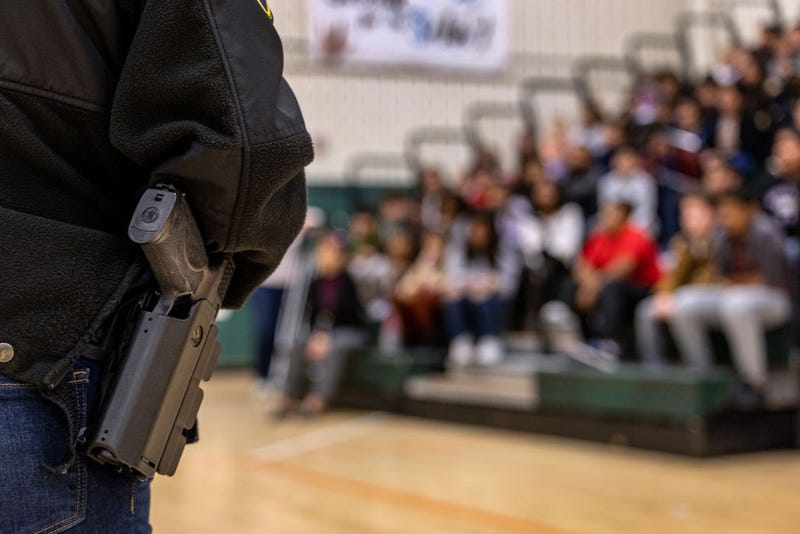
Brooklyn Park Police Chief Mark Bruley says he won't be sending School Resource Officers back into schools after Hennepin County Attorney Mary Moriarty's legal interpretation of Minnesota's new and controversial use-of-force law pertaining to SROs.
According to Moriarity, school resource officers should only use reasonable force to restrain a student if they pose a physical threat towards others.
That opinion differs from Attorney General Keith Ellison, who said SROs are able to use force, as long as it's reasonable.
Bruley said Friday he agrees with Moriarity's opinion.
"And I have to be honest with you, this lends itself to the lack of clarity in the law because when I read the law, I tend to agree with Mary Moriarty," says Bruley. "Her interpretation is very accurate to what the law says, very accurate to what legislators have indicated their intent was. There are many legislators who have been very specific that the law the way it was written was exactly what they intended to do. They intended to have two standards of use of force for law enforcement, this new SRO standard, and they intended to greatly restrict it and make officers only be able to use the same force as what teachers can use in a school."
The decision to keep SROs out of Brooklyn Park schools is a tough one according to Bruley as he says police officers are responding to school incidents five to six times a week.
"We respond to these schools for crimes and now it's more likely it's just a ticket is getting written, or a citation for theft or other crimes, assault, things like this," says Bruley. "That's not necessarily the best outcome and I think we can all agree on that. Our schools are aware of that, they are very supportive of the SRO program. They see the value both in better outcomes for our students, and they also see the value on the security and safety that our SRO's help keep at our schools. A lot of that is because of the incredible relationships a lot of our SRO's have with out students."
Hennepin County Sheriff Dawanna Witt told WCCO Radio's Jordana Green on Friday that she's had many conversations with teachers who remain concerned about their safety.
"I'm not really sure why we haven't heard from the Teacher's Union on this issue, because we do need people to speak up about what safety mechanisms SRO's have used," says Witt. "Were they used inappropriate? You know, I'm interested in knowing why that was even put there. On a day when everyone is talking about data, what data show that kids were being hurt by SRO's or by any school agents? Where did this come from? I'm really curious to know that."
Witt added she's hopeful that conversations can happen before the next legislative session in order to make the necessary changes to the law that will get SROs back into schools statewide.
"I think that, at the end of the day, whenever you make decisions that affect other professions, ones in which you have not worked in or know nothing about, you should have had the right people at the table to prevent us from being in this mess in the first place," Witt explained. "Which is why I'm hoping that I can have these conversations with people on both sides of the fence before February. Because we're adults and we should be able to do this before February to maybe even come up with some language together that we can all work with. But we have to have those conversations."
Agreement, and a more clearly written law, is what Bruley says will make the SRO issue go away.
"This law was pretty poorly crafted in my opinion," says Bruley. "It was never brought before a traditional review committee like the Public Safety Committee which would have police officers like myself. We could have weighed in and said this doesn't make sense for how we use force. We could have given insight and clarity on this. Because this was never brought, embedded, to people that are in the industry of law enforcement, at the end of the day it was just a law that ended up being unclear. We need one of two things. Either the law needs to be clarified so we understand it. Or two, everybody who affects the criminal justice system, has to concur on the interpretation. And we don't have either of those things right now."
